Showing 1–12 of 22 resultsSorted by latest
-
Sale!
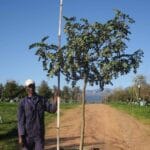
Ceratonia Siliqua 400lt
Original price was: R9,500.00.R7,450.00Current price is: R7,450.00.Add to cartCeratonia Siliqua 400lt
Common Name: Carob Tree, Locust TreeFull Sun
Semi Shade
Medium Watering
Drought Resistant
Evergreen TreeCeratonia siliqua, commonly known as the carob tree, is a flowering evergreen tree in the Fabaceae family. It is native to the Mediterranean region, including parts of Southern Europe, Northern Africa, and the Middle East.
Botanical Characteristics
Leaves: The carob tree has compound leaves with 4-10 oval leaflets that are glossy and dark green.
Flowers: The tree produces small, red-tinted flowers that are either male, female, or hermaphroditic.
Fruit: The carob tree is best known for its edible pods, which are long, brown, and leathery. These pods contain a sweet pulp and several hard seeds.Growing Conditions
Climate: Carob trees thrive in warm, dry climates typical of the Mediterranean region. They are drought-tolerant and can grow in poor soils.
Soil: While they prefer well-drained, sandy, or loamy soils, carob trees can also grow in rocky and less fertile soils.
Watering: Carob trees are highly drought-resistant once established, requiring minimal water.Uses
Culinary: The pods are often ground into carob powder, which is used as a cocoa substitute in various recipes, including baked goods, beverages, and confectionery. The seeds are used to produce locust bean gum, a common thickening agent in food products.
Animal Feed: The pods are also used as livestock feed due to their high nutritional content.
Other Uses: The wood of the carob tree is hard and can be used for carpentry, while the leaves and pods have been used in traditional medicine.Nutritional and Health Benefits
Nutrient-Rich: Carob is high in fibre, calcium, and antioxidants. It is low in fat and does not contain caffeine or theobromine, making it a suitable chocolate alternative for people sensitive to these substances.
Digestive Health: The high fibre content aids in digestion and can help regulate blood sugar levels.
Heart Health: The antioxidants in carob can contribute to cardiovascular health by reducing oxidative stress and inflammation.Carob trees are valued not only for their versatility and nutritional benefits but also for their ecological role in sustainable agriculture, especially in arid and semi-arid regions.
-
Sale!
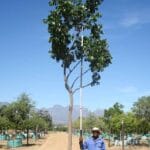
Trichilia Emetica 1000lt
Original price was: R18,000.00.R11,500.00Current price is: R11,500.00.Add to cartTrichilia Emetica 1000lt
Common Name: Natal Mohogany -
Sale!
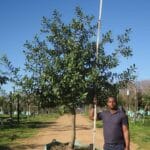
Sideroxylon Inerme 1000lt
Original price was: R18,000.00.R11,500.00Current price is: R11,500.00.Add to cartSideroxylon Inerme 1000lt
Common Name: White Milkwood -
Sale!

Turkey Oak Tree 1000lt
Original price was: R18,000.00.R11,500.00Current price is: R11,500.00.Add to cartQuercus Cerris Tree 1000lt
Common Name: Turkey Oak -
Sale!
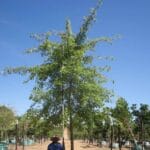
Quercus Palustris 1000lt
Original price was: R18,000.00.R11,500.00Current price is: R11,500.00.Add to cartQuercus Palustris 1000lt
Common Name: Pin OakFull Sun
Low Watering
Drought Resistant
Deciduous -
Sale!
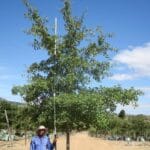
Quercus Nigra 1000lt
Original price was: R18,000.00.R11,500.00Current price is: R11,500.00.Add to cartQuercus Nigra 1000lt
Common Name: Water OakFull Sun
Medium Watering Till Established
Semi-deciduous
Drought Resistant
Exotic Tree -
Sale!
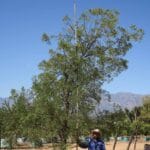
Afrocarpus Falcatus 1000lt
Original price was: R18,000.00.R11,500.00Current price is: R11,500.00.Add to cartAfrocarpus Falcatus 1000lt
Common Names: Podocarpus common yellowwood, common yellowwood, bastard yellowwood, outeniqua yellowwood, African fern pine, weeping yewFull Sun
Semi Shade
Evergreen
Medium Watering
IndigenousSlow growing tree that grows up to 25m in height with narrow, dark green leaves and fleshy, yellow fruit.
-
Sale!
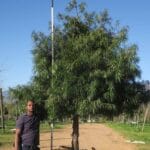
Podocarpus Henkelii 1000lt
Original price was: R18,000.00.R11,500.00Current price is: R11,500.00.Add to cartPodocarpus Henkelii 1000lt
Common Name: Henkel’s YellowwoodFull Sun
Semi Shade
Evergreen
Medium Watering
Indigenous -
Sale!

Platanus Acerifolia 1000lt
Original price was: R18,000.00.R11,500.00Current price is: R11,500.00.Add to cartPlatanus Acerifolia 1000lt
Common Name: London Plane TreeFull Sun
Semi Shade
Deciduous
Medium Watering -
Sale!
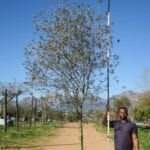
Olea Africana 1000lt
Original price was: R18,000.00.R11,500.00Current price is: R11,500.00.Add to cartOlea Africana 1000lt
Common Name: Wild OliveFull Sun
Low Watering
Wind Tolerant
Drought Tolerant -
Sale!
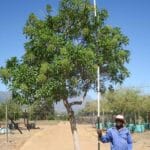
Nuxia Floribunda 1000lt
Original price was: R18,000.00.R11,500.00Current price is: R11,500.00.Add to cartNuxia Floribunda 1000lt
Common Name: Forest ElderFull Sun
Indigenous
Medium Watering -
Sale!
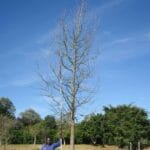
Liquidambar Styraciflua 1000lt
Original price was: R18,000.00.R11,500.00Current price is: R11,500.00.Add to cartLiquidambar Styraciflua 1000lt
Common Name: Sweet Gum
